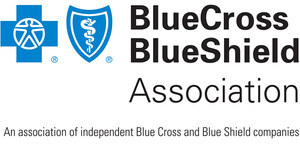CHICAGO, May 20, 2021 /PRNewswire/ -- Black women under the age of 24 are more likely to experience severe childbirth complications than white women over the age of 35 – an age group usually considered high risk, according to new data from the Blue Cross Blue Shield Association (BCBSA). Data shows the rates of childbirth complications have been increasing for women of color. In the last two years, the rate of Hispanic women with severe childbirth complications increased 19%.
"There is an urgent maternal health crisis in our country," said Kim Keck, president and CEO of BCBSA. "It is unconscionable that women of color face a greater risk of childbirth complications compared to white women. We must confront health disparities across the board to change the trajectory."
The recent study examines the rate of childbirth complications as measured by the CDC's Severe Maternal Morbidity Measure (SMM)—21 different adverse events or unexpected outcomes from labor and delivery with significant short- or long-term consequences to a woman's health, and in some cases, may lead to death.
SMM rates are 63% higher for women in majority Black communities and 32% higher for women in majority Hispanic communities when compared to majority white communities.
In addition, BCBSA surveyed approximately 750 women about their pregnancy and childbirth care experience in the last year, representing commercial, Medicaid, Medicare and uninsured individuals. The survey found 62% of Black mothers were able to complete all recommended prenatal visits, citing transportation barriers or scheduling conflicts.
Compared to white women, Black and Hispanic women reported feeling less confident they would receive the care they need. Fewer Black mothers reported feeling they can speak openly with their provider, or felt that their provider spent enough time with them.
"The disparities we see in maternal health care are the result of a complex fabric of social, racial and economic injustice – and require a new system of health caring, not just health care," said Keck. "Every mother deserves to have the best care at every stage of their pregnancy. This is why Blue Cross and Blue Shield companies have committed to reducing racial disparities in maternal health by 50% in five years."
BCBS companies have started the work to reduce these disparities and prevent dangerous and tragic outcomes for women of color. This includes identifying women at risk of SMM and providing one-on-one coaching to manage chronic conditions during pregnancy, addressing underlying social needs that have a significant impact on health and providing community support, such as doulas, to mothers throughout their pre- and postnatal journeys.
Through the BCBSA National Health Equity Strategy, BCBS companies are also encouraging industry initiatives to develop national standards for the collection of race, ethnicity and language (R/E/L) data, partnering with providers to offer unconscious bias training and exploring opportunities for collaborating with community stakeholders and providers to reduce risk factors for SMM and promote efforts to improve quality and safety.
BCBSA is actively leaning into new and longstanding relationships with community organizations to address root causes of inequities. BCBSA continues to advocate for public policies at the state and federal levels to improve access to health coverage and supports efforts like the Momnibus Act of 2021 - a set of bills that will save the lives of new and expecting moms.
Read the full report, "Racial Disparities in Maternal Health," part of the Blue Cross Blue Shield, The Health of America Report® series.
For more information about the BCBSA National Health Equity Strategy and maternal health programs, visit BlueHealthEquity.com.
The National Health Equity Strategy is part of the Blue Cross Blue Shield Pledge to Make Meaningful Change. The Pledge speaks to BCBS companies' broad commitment to addressing racial disparity in health and all its forms.
ABOUT BLUE CROSS BLUE SHIELD ASSOCIATION
The Blue Cross Blue Shield Association is a national federation of 35 independent, community-based and locally operated Blue Cross and Blue Shield companies that collectively provide healthcare coverage for one in three Americans. BCBSA provides healthcare insights through The Health of America Report series and the national BCBS Health IndexSM. For more information on BCBSA and its member companies, please visit BCBS.com. We also encourage you to connect with us on Facebook, check out our videos on YouTube and follow us on Twitter and Instagram. You can read our Pledge to Make Meaningful Change here. To learn more about our National Health Equity Strategy and our Maternal Health Program, visit BlueHealthEquity.com.
SOURCE Blue Cross Blue Shield Association

Related Links
WANT YOUR COMPANY'S NEWS FEATURED ON PRNEWSWIRE.COM?
Newsrooms &
Influencers
Digital Media
Outlets
Journalists
Opted In





Share this article